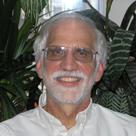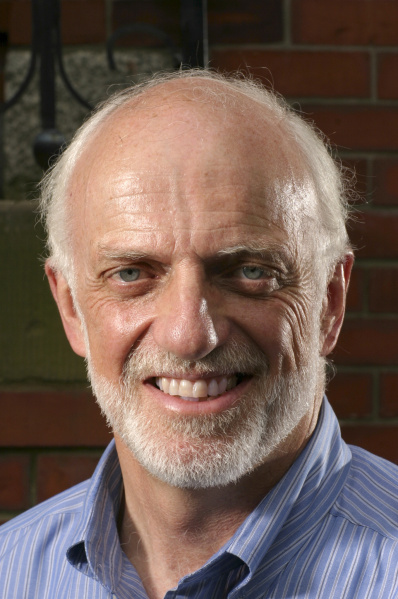Theories of Carcinogenesis: Mutations and Cancer
10:00 am US Eastern Time
Slides & Resources
Speaker presentation slides:
Dr. Loechler: Mutations and Cancer
Dr. Clapp: Occupatoinal and Environmental Causes of Cancer
Additional resources of interest:
NIH: Environmental and Occupational Causes of Cancer, New Evidence: 2005-2007
National Cancer Institute: Division of Cancer Epidemiology and Genetics: Occupational Exposures
Previous calls in this series:
When CHE Partners explore environmental contributors to cancer, they often do so with limited scientific background in the competing theories of carcinogenesis. The CHE Cancer Working Group is undertaking a series of teleconferences to explore these theories because of their direct bearing on how environmental contributors to carcinogenesis are perceived and evaluated. On this call, Drs. Richard Clapp and Edward Loechler discussed mutations and cancer.
From Drs. Loechler and Clapp:
The conceptual framework that has guided much of the research on causes of cancer in the past several decades has been described as a series of “hallmarks,” or capabilities that must occur to transform a normal cell into a fully malignant cancer cell. This framework has been articulated most clearly by Hanahan and Weinberg in widely cited scientific articles and books published since 2000. The six principal hallmarks described in their first article have now been supplemented by two additional “emerging hallmarks” and two “enabling characteristics” that reflect more recent research findings. Although there are multiple combinations and sequences of these cellular and tissue-level events, and knowledge of many of the details of steps that lead to specific cancers remain to be discovered, the overall framework is widely accepted and has proven to be very useful.
This hallmarks scheme falls primarily into the somatic mutation theory (SMT) of carcinogenesis. One of the speakers (Edward Loechler) has focused much of his research on how cancer-causing substances cause mutations. For example, he has examined aspects of the cancer-causing mechanism for the potent mutagen and carcinogen benzo[a]pyrene, which is a representative polycyclic aromatic hydrocarbon found in vehicle exhaust and cigarette smoke. He will describe some of the findings from his research, including how benzo[a]pyrene reacts with DNA to form DNA-adducts, which are then misreplicated by DNA polymerases to give the kinds of mutations that cause normal cells to become tumorigenic. He will also describe a “clean experiment” in which a cancer-gene ("oncogene") is inserted into cells that are then introduced into experimental animals. The animals with inserted oncogenes go on to develop tumors, whereas those without the inserted oncogenes do not. This is one of the types of experiments that buttress the conceptual framework described by Hanahan and Weinberg.
Much of recent epidemiologic research on environmental and occupational causes of cancer implicitly or explicitly assumes this conceptual framework. When detailed exposure information is available, it is sometimes possible to focus on the carcinogenic effects of ionizing radiation or specific chemicals. The other speaker (Richard Clapp) described examples of recent epidemiologic studies that have examined such effects. Some of the leading examples of such studies in the US have been carried out by researchers at the National Cancer Institute in the Occupational and Environmental Epidemiology Branch. For example, a study of diesel exhaust-exposed workers in eight mines documented increased lung cancer risk with increased exposure, while controlling for the effects of cigarette smoking. This was key information leading to the classification of diesel exhaust as carcinogenic to humans by the International Agency for Research on Cancer in a monograph published in 2013. Other examples exploring gene-environment interaction were discussed.
Featured Speakers

Edward Loechler, PhD, Professor of Biology at Boston University. Dr. Loechler is a molecular biologist who studies the chemical and genetic mechanisms by which mutations lead to cancer. He has been on the Boston University Faculty since 1984 and has conducted research and taught courses there up to the present. He has published about eighty research articles, book chapters and reviews in the peer-reviewed scientific literature. He has also served on the editorial board of Mutation Research, Chemical Research in Toxicology, and Carcinogenesis, and has been on several study sections and review committees of the National Institutes of Health and the American Cancer Society. He Co-Founded (with Larry Loeb) the Gordon Research Conference on DNA Damage, Mutations and Cancer in 2000.
 Richard Clapp, DSc, MPH, Professor Emeritus at Boston University School of Public Health and Adjunct Professor at U. Mass.- Lowell. Dr. Clapp is an epidemiologist who studies environmental and occupational causes of cancer. He was on the Boston University School of Public Health Faculty between 1991 and 2010 where he did research and taught courses. He was the founding Director of the Massachusetts Cancer Registry in the Department of Public Health, where he worked from 1980-1989. He has published dozens of research articles, book chapters, editorials and reviews in the peer-reviewed scientific literature. He served as an Associate Editor of Environmental Health Perspectives and edited the Scientific Solutions section of New Solutions: A Journal of Environmental and Occupational Health Policy.
Richard Clapp, DSc, MPH, Professor Emeritus at Boston University School of Public Health and Adjunct Professor at U. Mass.- Lowell. Dr. Clapp is an epidemiologist who studies environmental and occupational causes of cancer. He was on the Boston University School of Public Health Faculty between 1991 and 2010 where he did research and taught courses. He was the founding Director of the Massachusetts Cancer Registry in the Department of Public Health, where he worked from 1980-1989. He has published dozens of research articles, book chapters, editorials and reviews in the peer-reviewed scientific literature. He served as an Associate Editor of Environmental Health Perspectives and edited the Scientific Solutions section of New Solutions: A Journal of Environmental and Occupational Health Policy.
The call was moderated by Michael Lerner, President of Commonweal.


